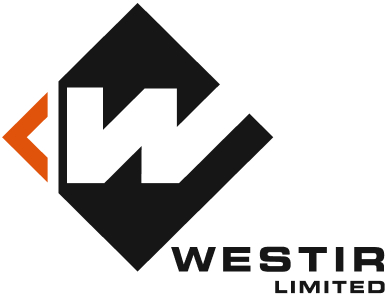CONFERENCE AND SEMINAR HIGHLIGHTS 2017
The staff at WESTIR Limited had the opportunity to go to several conferences and seminars in 2017. A brief overview of each conference/seminar is provided below.
AUSTRALIAN SOCIAL VALUE BANK MASTERCLASS
Staff from WESTIR Limited attended a masterclass on Australia’s first Social Value Bank in May 2017. The Australian Social Value Bank is aiming to help social organisations and not- for-profit companies put a well-researched economic value on the services and programs they deliver to individuals and communities. More information about the Australian Social Value Bank can be found through the following link: https://asvb.com.au/
OVERTURNING PERCEPTIONS: MIGRATION, RENEWAL AND THE NEW WESTERN CITY – UNSW CITY FUTURES RESEARCH CENTRE SEMINAR
The UNSW City Futures Research Centre hosted a seminar in June 2017 on the perceptions and reality of ethnicity and migration in Western Sydney. Visiting Professor Ryan Allen from the University of Minnesota examined whether ethnicities in Sydney are mixed or have formed enclaves. He noted that the perception of enclaves in areas of Sydney are somewhat reflected in reality for some religions, but not when various ancestries are examined.
Dr Hazel Easthope from City Futures at UNSW looked at the impact of escalating housing costs in ‘gateway’ suburbs. These ‘gateways’ have provided traditional first stage housing for new arrivals, especially in private rental housing. These areas, although often high on the SEIFA Index of Disadvantage, have provided notable benefits for new arrivals in Australia. Her investigation found that these areas were losing their efficacy and attractiveness as arrival housing.
The presentations were largely based on 2011 Census data and the following link provides the two presentations from the evening: http://bit.ly/2yaj7B6
KEEP THEM SAFE EVALUATION – AUSTRALASIAN EVALUATION SOCIETY (AES) SEMINAR
The AES hosted a seminar on the Keep Them Safe (KTS) evaluation process and reporting in June 2017. KTS was the NSW Government’s five-year reform of family and community services to improve the safety, welfare and well-being of children and young people. The evaluation cost $5 million and won Evaluation of the Year in 2015.
The evaluation process implemented a range of methods and approaches including: indicator analysis, unit record analysis, economic evaluation, workforce survey, stakeholder consultations, case studies, consultations with Aboriginal community organisations, audit of other initiatives in NSW and a literature review.
Peter Ryan and Kylie Valentine for UNSW Social Policy Research Centre presented on the success and limitations of the evaluation process. The factors that made the evaluation success included long term inclusive planning using multi-agency steering committee; indepth knowledge of the subject matter; demonstrated flexibility and adaptability; necessary technical competence; good will between contracting agency and evaluators; robust project management; and good, detail data tracking tools.
Overall, the evaluation found that KTS resulted in a reduction of risk of self-harm (ROSH) reports in children and young people, and a lower chance of system receiving a new ROSH report or children entering out of home care. The full evaluation report of the Keep Them Safe report can be found at the following link: http://bit.ly/2y9p5lA
LANGUAGE AND CENSUS SEMINAR, MACQUARIE UNIVERSITY
In July 2017, Macquarie University researchers presented their work on using Census data to understand multilingualism in Australia. The three presentations focused, first, on understanding the mix of languages across Sydney’s suburbs, secondly, on intergenerational language retention for the generations born in Australia, and finally, on the understanding of multilingualism in schools. Further information on the research group and projects can be found through the following link: www.multilingualsydney.org
WESTERN SYDNEY 2016 CENSUS DATA SEMINAR, AUSTRALIAN BUREAU OF STATISTICS, WESTERN SYDNEY UNIVERSITY PARRAMATTA
The Australian Bureau of Statistics held a 2016 Census Data Seminar in August 2017 at the Western Sydney University Parramatta CBD campus. The seminar presented the recently released 2016 Census data on a local and national level. A copy of the seminar presentation can be found through the following link: http://bit.ly/2kaQfmb
INVESTING IN COMMUNITIES: NCOSS REGIONAL CONFERENCE PARRAMATTA
NCOSS hosted a regional conference in August 2017 at Parkroyal Parramatta. The conference brought together stakeholders from across the sector to discuss policy areas such as housing and homelessness, gender equality and domestic violence, justice, children and youth, families, disability and health. More information about the conference can be found through the following link: http://bit.ly/2fwefe7
AES INTERNATIONAL EVALUATION CONFERENCE
The AES International Evaluation Conference was held in Canberra in September 2017. The conference theme, Evaluation Capital, encouraged presenters and conference delegates to reflect on what evaluation can offer as an asset for sound governance, as well as pointing to the inherently political nature of evaluation.
Keynote and invited speakers provided insights from many years of experience working in both local and international contexts. Speakers urged conference delegates to capitalise on the power of evaluation, through the information it can provide to communities as much as to decision-makers. In and of itself, evaluation is not democratic, but if evaluators focus on including marginalised voices, environmental impacts, social costs and so on in their evaluations, rather than focusing narrowly on the terms set by the commissioners of evaluations, it can be made to serve democratic aims.
The rich program of presentations was organised under the themes of ‘Diverse Identities’, ‘Learn from Practice’, ‘Insights from Theory’, ‘Use Findings’, and ‘Build Systems’. There was a strong presence of Indigenous researchers and evaluators, as well as non-Indigenous researchers who have worked with Indigenous communities. Many presentations also spoke about ways to overcome the disconnect that can happen between evaluators, evaluees, and decision-makers, while others focused on innovative approaches to evaluation research that would take into account the needs of communities and program participants, and make the knowledge generated by evaluators relevant to wider audiences.
LOCAL COMMUNITY SERVICES ASSOCIATION (LCSA) CONFERENCE
The Local Community Services Association (LCSA) hosted its Connecting Communities Conference in September 2017 at the Australian Technology Park, Redfern. The conference explored the essential role of building strong communities in implementing successful early intervention strategies, with a particular focus on inclusion and diversity as integral in building connection and resilience. There were three main themes woven through the keynotes, concurrent sessions and masterclasses – that being, achieving inclusion, leadership in times of change and uncertainty, and building strong connected communities. More information about the conference can be found through the following link: http://bit.ly/2k4Q1g4
AUSTRALIAN SOCIAL POLICY CONFERENCE, UNIVERSITY OF NEW SOUTH WALES
The bi-annual Australian Social Policy Conference was hosted by the UNSW Social Policy Research Centre in September 2017. A staff member from WESTIR Limited attended the Wednesday of the three-day conference.
The first plenary was taken by Professor Jill Manthorpe from the King’s College London. The talk was entitled ‘Money matters: how social policy studies are linking up money with new social problems’. Professor Manthorpe talked about examples from UK social policy to highlight how social welfare practice may need to be more financially literate (for example, consumer directed care). The financing of care assumed prominence in the most recent UK General Election, illustrating the need for greater focus not only on public expenditure but on combining understandings of old-style notions of public administration with family and individual perceptions of fairness and entitlements.
The second plenary was taken by Commissioner Robert Fitzgerald AM who outlined the Research Program of the Royal Commission into Institutional Responses to Child Sexual Abuse. The Royal Commission’s research program was unprecedented in scope and achievements, working with over 30 institutions to produce 101 projects, 59 of which will be published at the end of the Royal Commission. He outlined the Commission’s findings on perpetrator, survivor and institution profiles and research into memory.
Other special sessions on children were attended, including the Pathways of Care Longitudinal Study currently being undertaken by the NSW Department of Family and Community Services.
The conference’s program and abstracts can be found through the following link: http://bit.ly/2yu2D2A
SUSTAINABLE COMMUNITIES CONFERENCE, THE HILLS SHIRE COUNCIL
The Hills Shire hosted its fourth Sustainable Communities Conference in October 2017, with the theme ‘Change is coming: are you on track?’.
Dr Paul Porteous from the Centre for Social Leadership was the first to speak about the leadership required around creative community collaboration. He spoke on topics such as change fatigue, increasing our problem-solving capacity, the importance of missed conversations and living in an era where we are shifting from a market economy to a market society. He challenged people to shift their thinking from ‘what’s in it for me and my organisation?’ to ‘how does this build my community?’. Can Yasmut, Executive Officer from Local Community Services Association NSW spoke about how we get the theory of change to translate into actual change. He emphasised the importance of defining your community, actively engaging with your community, balancing expert and community evidence, identifying the stage of community life and taking effective community action.
Bernard Salt, Lead Demographer of The Demographics Group, spoke about ‘What’s The Future for The Hills?. He argued that in order for Australia to be a socially cohesive, resilient and prosperous nation, we need to embrace entrepreneurship. He also highlighted the story of The Hills, which is increasingly culturally diverse and losing their faith in big institutions, and is seeing an increase in singles, teenagers, families and retiree and those experiencing inequality. He suggested we need to future-proof our careers through STEM (Science, Technology, Engineering and Mathematics) and skills, entrepreneurship and enterprise, and agility and resilience (being fluid and embracing change).
A workshop about making your community group or not-for-profit organisation a success by Bruce Manefield from Rapport Leadership International was also attended.
The conference presentations can be found through the following link: http://bit.ly/2hf9Ctn
2016 CENSUS SECOND RELEASE DATA WEBINAR, AUSTRALIAN BUREAU OF STATISTICS
The Australian Bureau of Statistics in Canberra livestreamed a webinar on the 2016 Census second release data in October 2017. The topics covered in the second release Census data include labour force/employment, higher education and population mobility. The themes that were coming out of the national Census data are as followed:
- Top industries of employment for 2016: health care and social assistance, retail, education, childcare.
- Biggest growth in 2011 coming from arts and recreation services, health care and social assistance, education and training. Biggest declines in manufacturing, wholesale trade and retail trade.
- Part-time work is becoming more common.
- Women still do more unpaid domestic work than men.
- Older Australians are working longer. The industry with the highest median ages is agriculture.
- Post-graduate qualifications are rising rapidly, including in Aboriginal and Torres Strait Islander populations.
- Top fields of study: management and commerce, engineering and related technologies, society and culture, health and education. Strong growth in accounting, nursing and aged care.
- More in the overseas born population (59.8%) have a non-school qualification than Australian born population (54.2%).
- We are still a nation of car commuters, but 500,000 people are working from home.
The webinar is available through the ABS YouTube channel: https://www.youtube.com/AustralianBureauOfStatistics
EMPLOYABILITY AND THE FUTURE OF WORK: EMBRACING WESTERN SYDNEY, WESTERN SYDNEY UNIVERSITY
Western Sydney University’s School of Business and the Centre for Western Sydney hosted a forum entitled ‘Employability and the Future of Work: Embracing Western Sydney’ in October 2017. The session allowed key stakeholders from government, community and industry to discuss the complex and changing nature of the labour market, the key technical drivers of labour market change and skills that future workers require.
Professor Phillip O’Neill from the Centre of Western Sydney spoke about finding jobs for the 300,000 workers in Greater Western Sydney in the next twenty years. He spoke about the challenges the region faces including an increasingly educated workforce, a young population, the loss in demand for unskilled workers and the spatial distribution of jobs. Dr Jane Bye spoke about the challenges around employability for a disadvantaged suburb in Western Sydney called Miller. She suggested there is a need for practical and holistic community engagement and strong partnerships with local government. Finally, Dr Wayne Fallon spoke about employability in the context of curriculum change. He suggested that future workers will need to be taught enterprise employability skills – this includes communication, team work, critical thinking, presentation skills, resilience, curiosity, digital literacy, creativity, problem solving, financial literacy, emotional intelligence and lifelong learning.
The three presentations were followed by a panel discussion. The panel included David Borger (Western Sydney Business Chamber), Eddie Jackson (Director Community and Culture, Liverpool City Council), Natasha Lay (Western Sydney Program Officer, Youth Action), Vanessa Paterson (Workplace Gender Equality Agency), Billie Sankovic (Western Sydney Community Forum) and Martin Stewart-Weekes (PwC Australia). Discussion centred around social partnerships, obsession with work placement, importance of networks in getting a job, gender and work-life balance and seeing young people as assets and not risks.
FOOD GOVERNANCE SHOWCASE, UNIVERSITY OF SYDNEY FOOD GOVERNANCE NODE
WESTIR Limited attended the Food Governance Showcase hosted by the University of Sydney Food Governance Node at the Charles Perkins Centre in November 2017. The showcase covered food specific laws and regulations as well as other areas of law and policy that facilitate or impede access to a nutritious, equitable and sustainable food supply. The showcase also featured a case study looking into the development and implementation of the Healthy Food and Drink in NSW Health Facilities for Staff and Visitors Framework. The showcase program and abstracts can be accessed through the following link: http://bit.ly/2gLgpHr
TEI LINKER NETWORK SESSION, LEAD PROFESSIONAL DEVELOPMENT & NSW DEPARTMENT OF FAMILY AND COMMUNITY SERVICES (FACS)
WESTIR Limited attended a Targeted Earlier Intervention (TEI) Linker Network Session run by Lead Professional Development (formerly Family Worker Training and Development) in December 2017. The Linker Network project is an initiative of FACS Western Sydney Nepean Blue Mountains District that is designed to improve the services system by placing the child and their family at the centre of what we do, rather than individual types or models. The training session informed participants what The Linker Network is all about and how to be a part of an integrated service delivery model. More information about the FACS Linker Network is available through the following link: http://www.linker.org.au/


